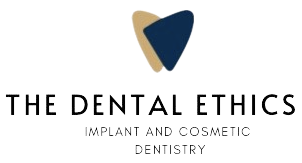You may have seen it advertised on social media, or heard about it from a friend – charcoal teeth whitening. It’s the latest trend in oral care and beauty products, promising to whiten your teeth quickly and effectively. But does it really work? Is charcoal teeth whitening just another marketing gimmick, or is there truth behind its claims of brighter smiles? In this article, we’ll explore the science behind charcoal teeth whitening and uncover whether it’s worth investing in for those seeking pearly whites. So sit back, grab your toothbrush, and let’s dive into the truth about charcoal teeth whitening.
What Is Charcoal Teeth Whitening?
Did you know that 18% of people feel self-conscious about their teeth? Teeth whitening is a popular solution to this problem, but have you heard of charcoal teeth whitening? Charcoal toothpaste has been around for decades, but recently it’s gained popularity as a natural alternative to traditional teeth whitening methods. Charcoal teeth whitening involves using activated charcoal in toothpaste or powder form to remove surface stains on teeth and promote overall oral health.
So how does it work? The activated charcoal in the toothpaste binds with toxins and bacteria in your mouth, lifting away surface stains from your teeth. It’s important to note that while some studies show promising results, there isn’t enough evidence yet to fully support its effectiveness compared to other types of teeth whitening treatments.
Despite this lack of conclusive evidence, many people are drawn to the idea of using a natural product like charcoal instead of harsh chemicals typically found in most commercial whiteners. Plus, charcoal toothpaste is readily available at most drugstores and online retailers.
In the next section, we’ll explore both the pros and cons of using charcoal teeth whitening products so you can make an informed decision about whether it’s right for you. But first, let’s take a closer look at what exactly makes up these products.
The Pros And Cons Of Charcoal Teeth Whitening
Are you considering trying charcoal teeth whitening? It’s important to weigh the pros and cons before diving in. On one hand, many people swear by its effectiveness at removing stains and brightening their smiles. However, on the other hand, there are some potential drawbacks that should be considered.
One anecdote to illustrate this point is that of a friend who tried charcoal teeth whitening. While it did whiten her teeth initially, she found that it caused increased sensitivity and even began to chip away at her enamel over time. This serves as a reminder that while certain methods may seem appealing for quick results, they can have long-term consequences.
Despite these concerns, data shows that activated charcoal has been proven effective in absorbing toxins and impurities from the body when ingested or applied topically. Some dentists even recommend using toothpaste with activated charcoal as an ingredient for gentle whitening.
Ultimately, whether or not charcoal teeth whitening works depends on your own unique circumstances and preferences. In our next section, we’ll explore the truth behind this trend and what science has to say about its efficacy. So let’s dive into: does charcoal teeth whitening actually work?
Does Charcoal Teeth Whitening Actually Work?
Looking for a teeth whitening solution? You might have come across the trend of charcoal teeth whitening. But does it actually work? It’s a question that has been on many people’s minds, and rightfully so. After all, who wants to invest in something that won’t give them the results they desire? Well, we’ve got some answers for you.
Firstly, let’s address the elephant in the room – activated charcoal is an abrasive substance. While it may remove surface stains from your teeth, there are concerns about its long-term effects on tooth enamel. Additionally, while some people swear by this method, others claim that it hasn’t worked for them at all.
That being said, there is evidence to suggest that charcoal can help with bad breath and gum health. So if those are issues you’re looking to tackle along with teeth whitening, then perhaps charcoal could be worth a try.
But ultimately, whether or not charcoal teeth whitening works depends on various factors such as individual differences in tooth sensitivity and how much staining needs to be removed. If you do decide to try it out for yourself, make sure to consult with your dentist first and proceed with caution.
So there you have it ? the truth about charcoal teeth whitening. While there may be benefits to using this method, there are also potential risks involved. As always when it comes to oral care remedies, take time to research thoroughly before diving in headfirst!
Conclusion
In conclusion, while charcoal teeth whitening may have its benefits such as being all-natural and effective in removing surface stains, it also has its downsides like potential enamel erosion. But the real question is, do you really need to go through the trouble of using charcoal when there are safer and more reliable methods available? Ultimately, the choice is yours, but remember to always prioritize your oral health above temporary cosmetic fixes.
